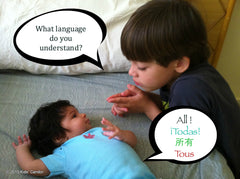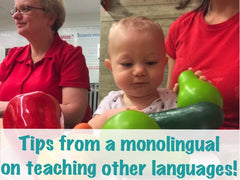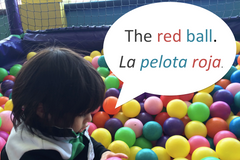Why Bilingualism
At a young age, children develop language skills rapidly, and they quickly absorb what they hear. This is a natural process and applies to learning languages in addition to the native language(s) spoken at home. Babies can become proficient in distinguishing between languages and can learn to understand new words in different languages at an incredibly fast rate. It is never too early to begin.
There are many advantages of being bilingual or multilingual
- enhancing self-esteem
- enabling communication with extended family and friends
- developing knowledge about how language operates
- supporting cognitive flexibility and ability to learn more languages
- enhancing problem-solving and analytical skills
- increased higher-level cognitive ability of executive function
These benefits span across socioeconomic statuses and extend beyond early childhood years. Having phonological awareness (sounds of a language) supports early literacy development. As with other areas of development, human social interaction is needed to support bilingualism and multilingualism. The attachment and bonding between children and their parents or caregivers plays a role in supporting bilingualism and its cognitive and social benefits.
Original Kids’ Candor Articles and Blogs
3 Simple Ways to Make Raising Your Child Bilingually Work

Infants build a complex sound system

What can a monolingual like me do to encourage the development of another language?

Developing noun phrases in Spanish and English

Little ones need to be raised bilingually - Kids' Candor delivers









